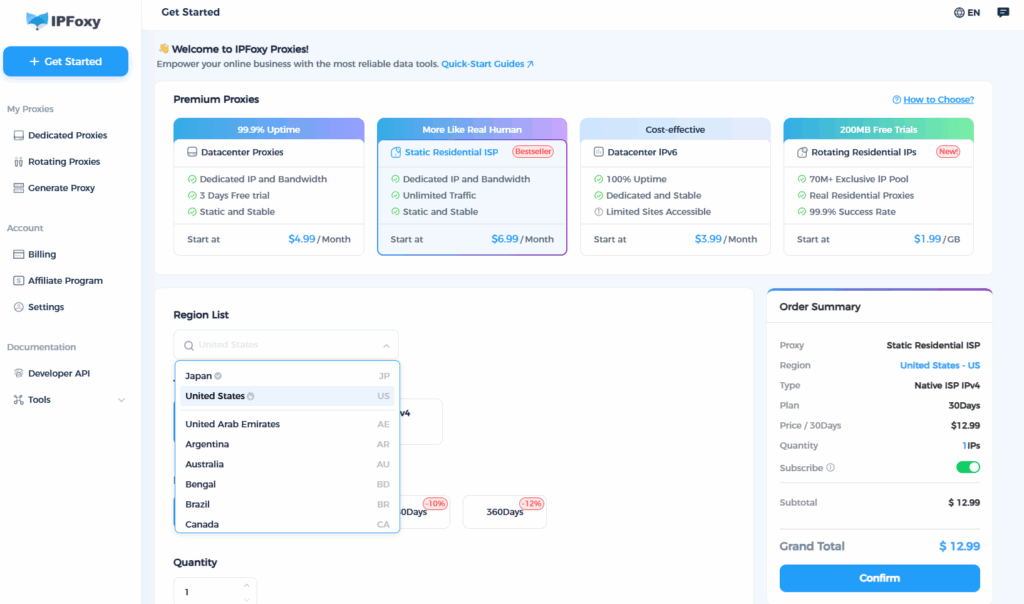As global e-commerce competition intensifies, platform rules are constantly tightening. Recently, Temu has launched a strict crackdown on duplicate listings, sending shockwaves through the seller community. For sellers already operating on Temu or planning to enter the platform, understanding these rule changes, adjusting operational strategies, and strengthening account protection are crucial.
This article focuses on two core aspects: first, analyzing the latest developments and underlying reasons behind Temu’s crackdown on duplicate listings; second, providing sellers with an “account protection guide + practical tips” to support more stable operations.
I. Temu’s Strict Crackdown on Duplicate Listings
According to the latest industry announcements, starting from November 1, 2025, Temu has officially implemented a three-tier penalty mechanism for “duplicate listings.” The platform is enhancing monitoring of infringements, duplicate listings, and other violations.
Many sellers have reported: “Several of my listings were directly taken down because the system identified them as duplicate listings.”
1. Underlying Reasons for Severe Penalties on Duplicate Listings
- Declining traffic allocation efficiency: With the surge in platform categories and seller numbers, a flood of duplicate listings and serious homogenization have scattered platform traffic resources, reducing user experience and conversion rates.
- Increased compliance and regulatory pressure: Temu faces regulatory challenges in multiple regions, including intellectual property, product safety, and import taxation. For example, the EU has launched investigations into the platform. Against this backdrop, Temu must strengthen rule enforcement to enhance its compliance reputation.
- Rising seller operational costs and intensified differentiated competition: The early model of low-cost bulk listing and duplicate is no longer sustainable. As traffic dividends fade, the effectiveness of “duplicate listings” has drastically decreased. The platform uses this crackdown to guide sellers toward higher-quality, standardized operations.
2. Impact on Sellers
- Sellers deemed to have “repeatedly listed the same product through multiple entities” will face direct penalties, such as listing removal, long-term or permanent account restrictions, and disqualification from appeals.
- Sellers must pay attention to: whether listings are duplicate (same title/image/specifications/description), whether bulk listing is excessive, and whether they intentionally evade identification mechanisms (e.g., changing images/titles but selling essentially the same product).
- Shortly before peak seasons (e.g., Black Friday, Christmas promotions), the platform’s oversight of non-compliant products becomes particularly strict. Sellers who fail to adjust in advance will severely miss sales opportunities.

II. Seller’s Account Protection Guide & Practical Tips
1. Multi-Account Operations
After Temu restricted duplicate listings, many sellers have shifted to a multi-account matrix operation strategy:
- List different styles or differentiated versions of similar products across accounts.
- Test different pricing, logistics, and copywriting strategies.
- Spread risks to avoid “total collapse” if one account is banned.
However, new challenges have emerged—Temu’s risk control system can detect hidden associations between accounts. Especially before peak seasons (Black Friday, Christmas promotions), the system becomes more sensitive to association and bulk operations, including:
- Logins from the same IP address.
- Identical device fingerprints.
- Consistent browser environments.
- Shared cookies, time zones, or system information.
Therefore, for multi-account operators, isolating accounts and their operating environments is the top priority for “account protection.”
The most reliable solution is to run each Temu account in an independent, clean, and stable network environment. This is usually achieved through a combination of two tools:
Recommended combination: Fingerprint browser + residential proxy. A fingerprint browser simulates independent device fingerprints, isolating cookies, browser environments, and system identifiers. An IP proxy service provides a unique IP address for each account, making the system recognize them as users from different regions.
Recommended tool: Use IPFoxy residential proxy to build a secure, stable operating environment.
- IPFoxy offers pure, stable residential IPs, allowing independent network identities for each account to effectively prevent accounts from being identified as associated by Temu’s system.
- When used with a fingerprint browser, it achieves full account-level isolation, avoiding being deemed a “multi-account operator” by Temu.
- This combination is almost a necessity for Temu sellers engaged in multi-store layouts, team collaboration, or cross-country operations.

2. Precise New Listing
The core of Temu’s crackdown is not excessive new listings, but duplicate new listings. The platform’s algorithm can identify similar images, duplicate titles, and similar specifications. Even if you change images or words, the system may still classify the product as a “duplicate listing” if the core logic is consistent.
Sellers should focus on:
- Avoid listing the same product across multiple stores.
- Use variants for similar products instead of creating multiple new listings.
- Differentiate content: Retake product images, optimize descriptions, and use differentiated copy to distinguish market positioning.
- Control listing rhythm: Avoid uploading a large number of similar products at once, as this sends a “bulk listing” signal to the platform.
First, use third-party product selection tools to research the market, assess the saturation of similar products, and then decide whether to enter. If a large number of identical products already exist, prioritize developing differentiated versions or original designs.
3. Risk Control Details
Temu’s content review and listing detection have been fully algorithmized. The system can automatically identify similarities in “titles/images/descriptions/SKUs.” The key to avoiding false positives lies in details:
- Title optimization: Avoid stacking homogeneous keywords; emphasize different uses or selling points for the same type of product.
- Independent descriptions: Do not copy old descriptions or content from similar listings; use different sentence structures and styles.
- Image re-creation: Instead of only adjusting brightness or cropping, retake images or modify compositions.
- SKU structure: Do not create multiple nearly identical SKUs to manipulate traffic.
4. Continuous Optimization
(1) Monitoring and Review Mechanism
Check for listing removals/warning notifications weekly. If a concentration of listings in a certain category is removed, promptly conduct a self-audit: whether images, titles, or specifications are duplicate.
Keep records of new listings, including image versions, description changes, and listing times, to facilitate appeals if needed.
(2) Maintain Account Stability
Log in and operate regularly; avoid prolonged inactivity or frequent device changes.
Complete store information in advance (brand qualifications, contact details, policy pages) to improve account credibility.
Avoid sudden large-scale listing or price adjustment operations during holiday promotion periods—Temu’s risk control system temporarily raises detection thresholds before and after major sales events.
Summary
Faced with Temu’s crackdown on duplicate listings, sellers can no longer rely solely on “bulk listing and price undercutting” to survive. Only by finding a balance between compliance and innovation can sellers achieve “longevity and stability” for their accounts in the context of tightening platform regulations. It is hoped that this article provides practical references for all sellers.


